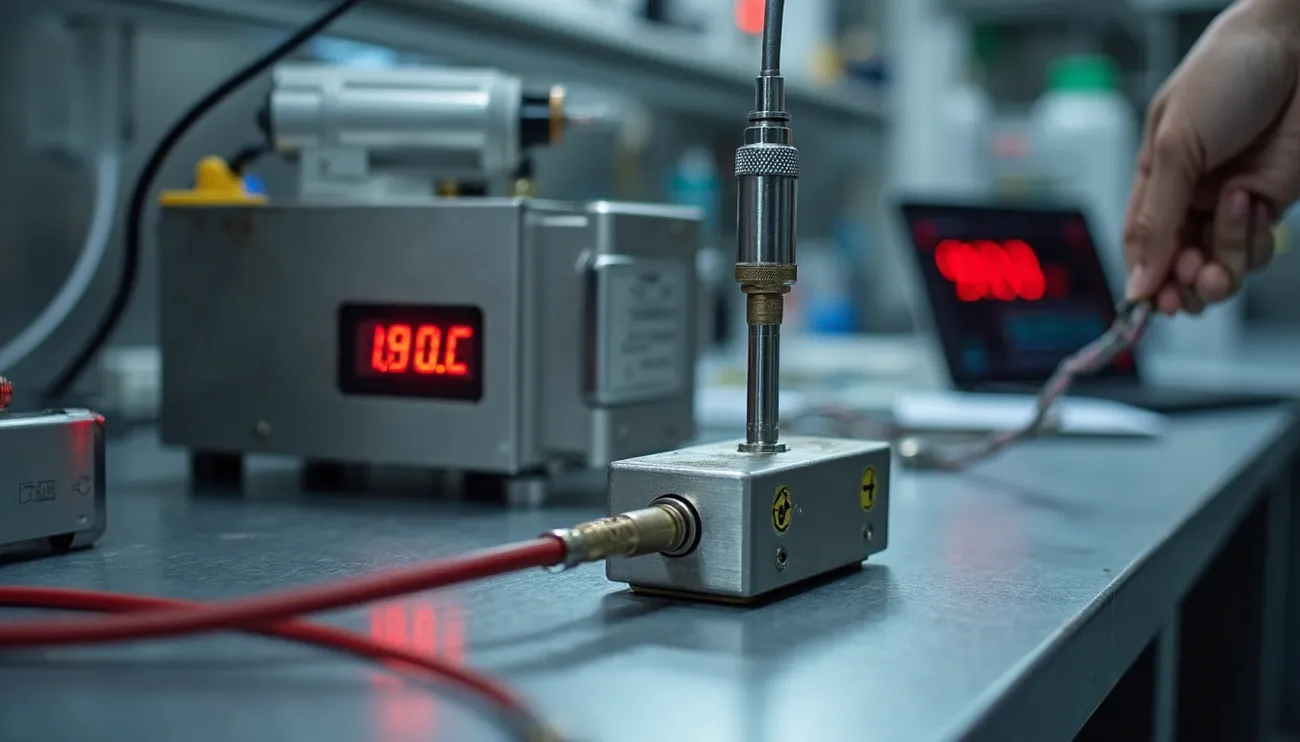Diesel theft is a significant concern for fleet managers, and the right fuel management system can play a crucial role in preventing it. Fuel level sensors are instrumental in this aspect, as they provide real-time data on fuel levels and monitor any unusual deviations.
Fuel level sensors are integral components of fuel tank management systems, serving various pivotal roles. They are installed inside the fuel tank to measure the exact fuel level in real time, providing invaluable data for effective fuel management. By monitoring fuel levels continuously, these sensors help in detecting any sudden drops in fuel levels that might indicate theft or leakage, thereby enabling real-time theft detection and prevention.
Introduction to Fuel Theft: A Growing Concern
Fuel theft is becoming an increasingly critical issue around the globe, affecting businesses and individuals alike. Diesel fuel, in particular, is often targeted due to its widespread use in commercial vehicles and machinery. The theft of this valuable resource not only leads to financial loss but can also disrupt operations, negatively impacting productivity and efficiency.
In recent years, technological advancements have provided potential solutions to combat fuel theft. One such technology that has proven to be effective is the fuel level sensor. By monitoring the amount of fuel in a tank, these devices can help prevent unauthorized siphoning and detect potential theft.
The importance of incorporating such technology in fuel management systems cannot be overstated. In the following sections, we will delve deeper into the concept of the fuel level sensor, its role in fuel tank management systems, and how it aids in preventing diesel theft.
Understanding the Fuel Level Sensor
A fuel level sensor, also known as a sensor for fuel level in tank or fuel tank sensor, is a device designed to measure the amount of fuel in a tank. This could be a petrol tank float, a universal fuel gauge, an ultrasonic fuel level sensor, or a diesel fuel tank level sensor. Regardless of the type, these sensors play a crucial role in monitoring fuel consumption and detecting anomalies that could indicate theft.
Fuel level sensors work by transmitting data on the fuel’s volume to a control unit. This data is then analyzed, providing valuable insights into fuel usage patterns. Any abrupt changes in these patterns may suggest potential theft, prompting further investigation.
Moreover, fuel level sensors are not only effective in detecting theft but can also contribute to overall fuel efficiency. By providing accurate fuel gauge readings, these devices can help optimize fuel consumption, leading to significant cost savings.
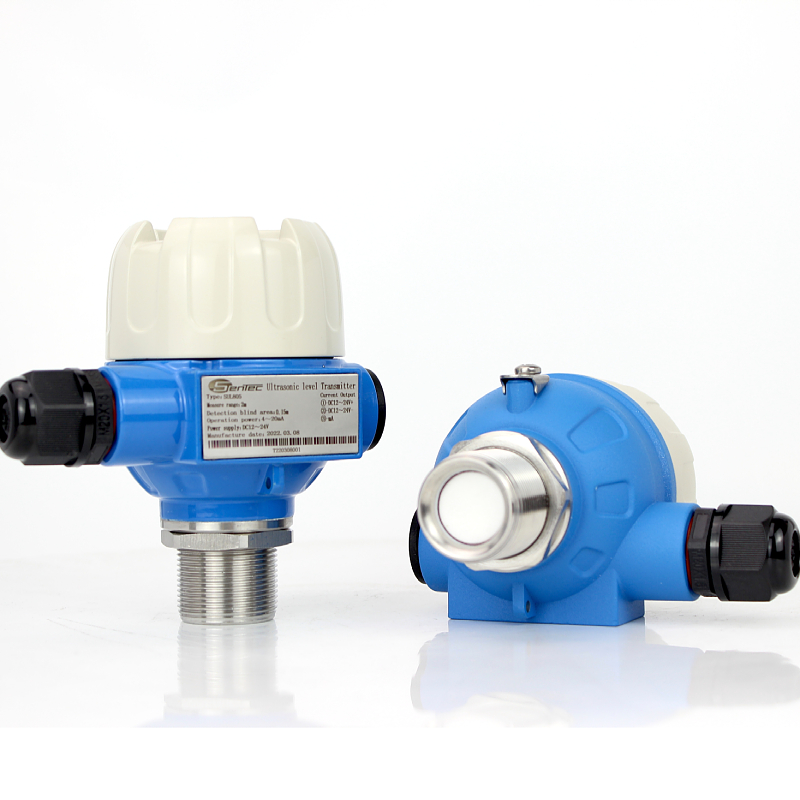
±1mm high accuracy fuel level sensor
Check out SUL805A High Accuracy ATEX Ultrasonic Level Transmitter
SenTec is one of earliest Fuel level sensor manufacturer
The Role of Fuel Level Sensors in Fuel Tank Management Systems
Fuel tank management systems are designed to monitor and control the storage and usage of fuel. They are comprised of various components, with the fuel level sensor being one of the most critical. The sensor provides real-time data on the fuel’s volume, making it easier to manage fuel supply and demand while minimizing waste.
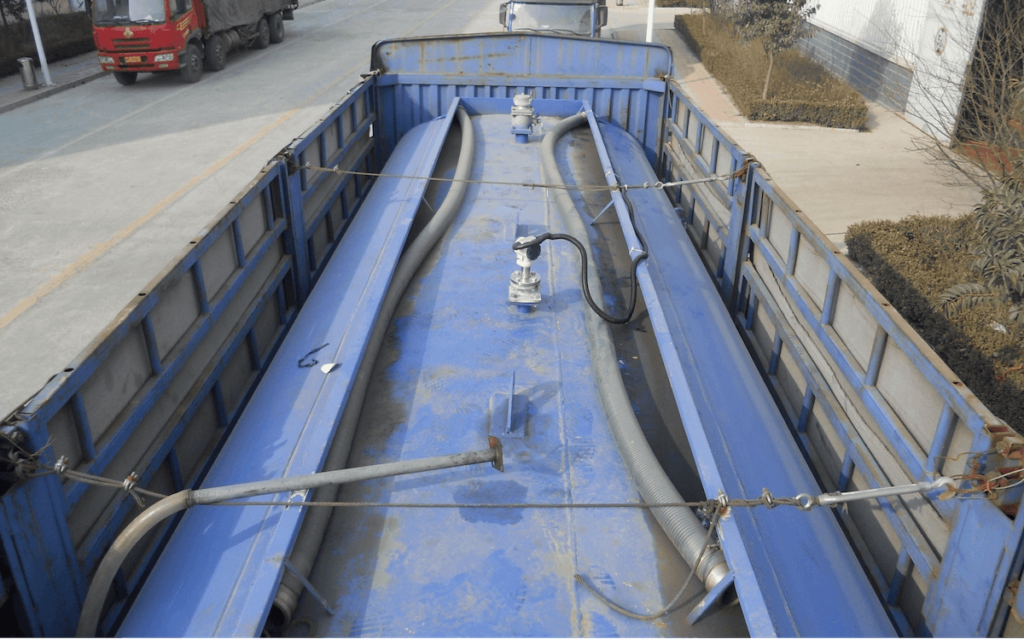
The information gathered by the fuel level sensor can be used to generate detailed fuel consumption reports. These reports can help identify inefficiencies and provide insights into how fuel usage can be improved. More importantly, they can serve as a valuable tool in detecting and preventing fuel theft.
For instance, if the sensor detects a sudden drop in fuel levels that cannot be accounted for by normal usage, it could indicate a potential theft. In such cases, the fuel tank management system would alert the operator, allowing for immediate action to be taken.
Different Types of Fuel Level Sensors
There are several types of fuel level sensors available in the market, each with its unique method of measuring fuel levels. Some common types include the petrol tank float sensor, capacitance level sensor, ultrasonic fuel level sensor, and optical sensor.
Float-type sensors, or petrol tank floats, use a floating device within the fuel tank that rises and falls with the fuel level. The movement of the float triggers a change in resistance, which is then converted into a fuel level reading.
Capacitance level sensors, on the other hand, operate based on the principle of capacitance. They measure the change in capacitance caused by the rise and fall of fuel levels, providing an accurate reading of the fuel quantity.
Ultrasonic fuel sensor emit ultrasonic waves towards the fuel surface. The time it takes for the waves to bounce back is measured, providing an indication of the fuel level.
Lastly, optical sensors use an infrared light source and a photodetector to measure the level of fuel. When the infrared light hits the fuel surface, it is reflected back to the photodetector, indicating the fuel level.
How do Fuel Level Sensors work in Preventing Diesel Theft?
Fuel level sensors play a critical role in preventing diesel theft by providing real-time monitoring of fuel levels. Any unusual drops in fuel levels are immediately detected, triggering an alert that prompts further investigation.
For instance, if a large amount of fuel is siphoned off suddenly, the fuel level sensor will detect the abrupt decrease in fuel levels. This information is instantly relayed to the fuel tank management system, which then alerts the operator.
Furthermore, by providing continuous monitoring, fuel level sensors can deter potential thieves. The knowledge that a sophisticated monitoring system is in place can act as a significant deterrent, reducing the likelihood of theft attempts.
The Function of Fuel Gauges in Fuel Monitoring
Fuel gauges, whether universal or digital, play an essential role in fuel monitoring. They provide visual representation of the data collected by the fuel level sensor, allowing for easy tracking of fuel levels.
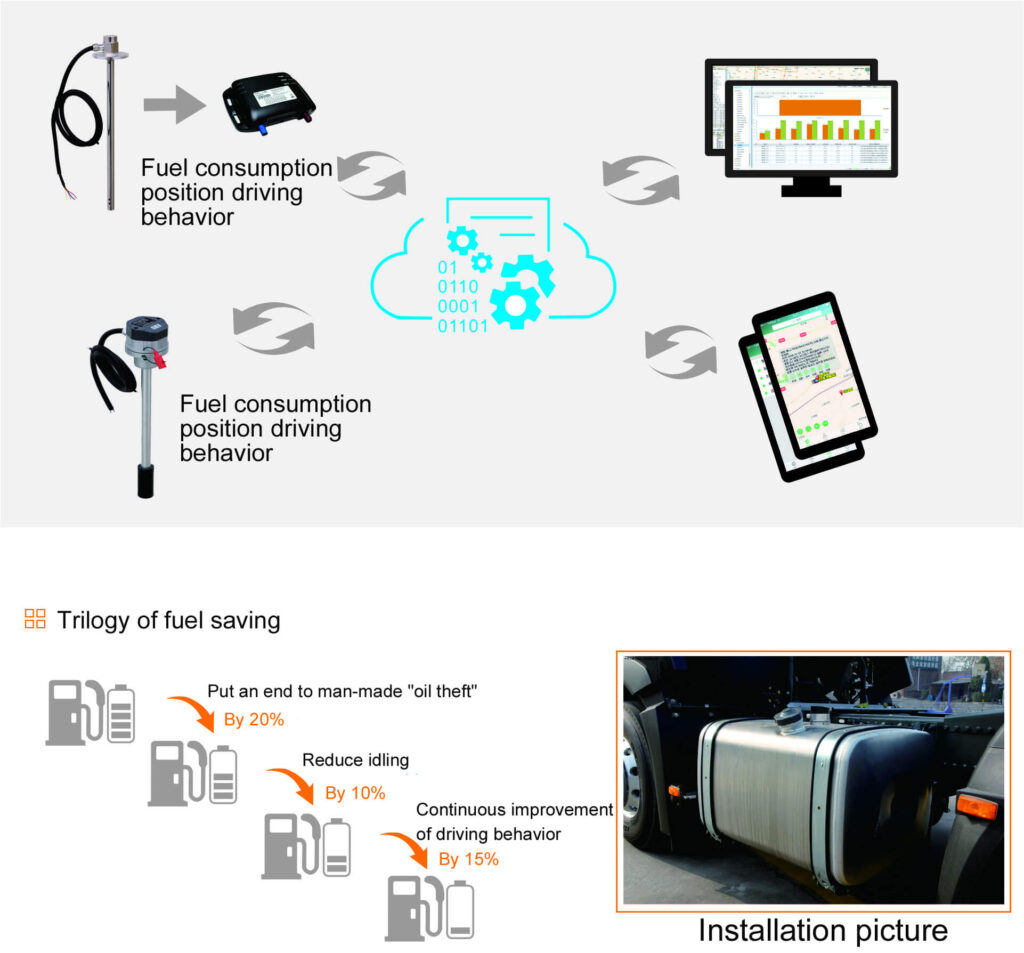
A fuel gauge reading can provide immediate insights into fuel usage patterns. Any sudden changes in these readings could indicate potential theft, prompting investigation.
Moreover, fuel gauges can help optimize fuel consumption by indicating when refuelling is necessary. This can prevent unnecessary refuelling trips, saving time and resources.
Fuel Management Systems: An Overview
Fuel management systems are comprehensive solutions designed to optimize fuel consumption and prevent theft. They utilize various technologies, including fuel level sensors and fuel gauges, to monitor and control the storage and usage of fuel.
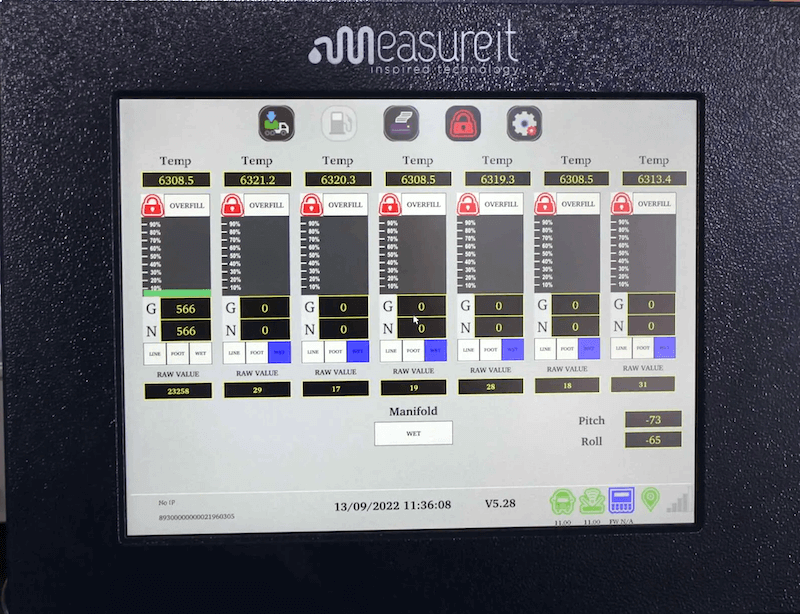
These systems can provide real-time data on fuel levels, consumption rates, and refuelling activities. This information can be used to generate detailed reports, providing valuable insights into fuel usage patterns and highlighting potential inefficiencies.
Moreover, fuel management systems can alert operators to potential theft. By continuously monitoring fuel levels, these systems can detect any unusual drops in fuel levels, triggering an alert that prompts investigation.
Fuel Monitoring System for Trucks: Ensuring Security
Fuel monitoring systems for trucks are particularly crucial in preventing diesel theft. These systems utilize fuel level sensors to provide real-time data on fuel levels, allowing for continuous monitoring of fuel consumption.
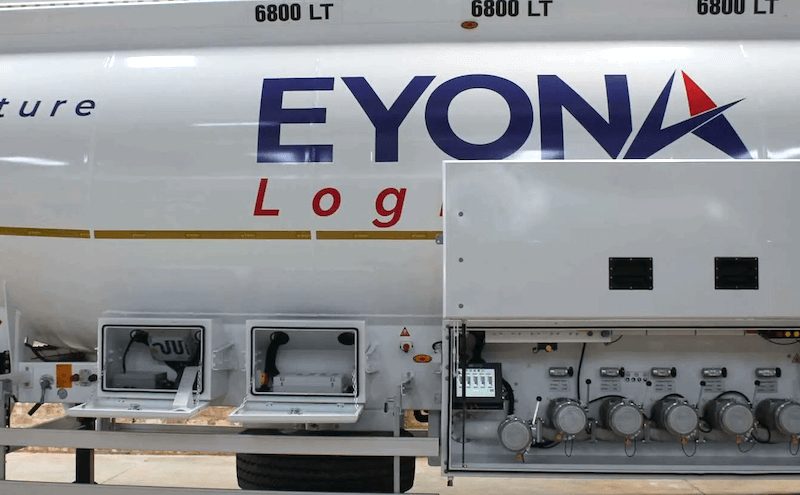
Any sudden drops in fuel levels, such as those caused by unauthorized siphoning, are immediately detected. The system then alerts the operator, allowing for swift action to be taken.
Fuel management systems serve as ideal solutions for fuel theft, unauthorized usage, and inefficiencies that contribute to excessive fuel consumption. They work by integrating various tools such as fuel level sensors and fuel flow meters alongside cutting-edge technology. This technology, when calibrated correctly, provides precise fuel consumption data, helping to prevent fuel theft.
Moreover, these systems can also help optimize fuel consumption. By providing accurate data on fuel usage, they can help identify inefficiencies and suggest ways to improve fuel efficiency.
Anti Fuel Theft Devices: Fuel theft solutions
Anti fuel theft devices are becoming increasingly popular as a solution to diesel theft. These devices, which include fuel level sensors, are designed to prevent unauthorized access to fuel tanks and detect potential theft.
For instance, some anti fuel theft devices south africa are equipped with alarms that are triggered if the fuel cap is removed without authorization. Others utilize advanced sensor technology to detect any unusual changes in fuel levels, triggering an alert if potential theft is suspected.
In addition to deterring theft, these devices can also contribute to overall fuel efficiency. By providing accurate data on fuel levels, they can help optimize fuel consumption, leading to significant cost savings.
Conclusion: Preventing Diesel Theft with Sensor Technology and Fuel Management Systems
Diesel theft is a growing concern that can lead to significant financial losses and operational disruptions. However, advancements in technology have provided effective solutions to this problem. Fuel level sensors and fuel management systems, in particular, have proven to be invaluable tools in preventing fuel theft.
Fuel level sensors provide real-time monitoring of fuel levels, allowing for the detection of potential theft. In addition, they contribute to overall fuel efficiency by providing accurate data on fuel usage.
Fuel management systems, on the other hand, utilize this data to optimize fuel consumption and alert operators to potential theft. By incorporating these technologies into their operations, businesses and individuals can protect their valuable resources and ensure their security.
In conclusion, preventing diesel theft is not only about securing fuel tanks but also about implementing effective monitoring and management systems. With the right technologies in place, fuel theft can be effectively prevented, ensuring the security and efficiency of fuel-dependent operations.


